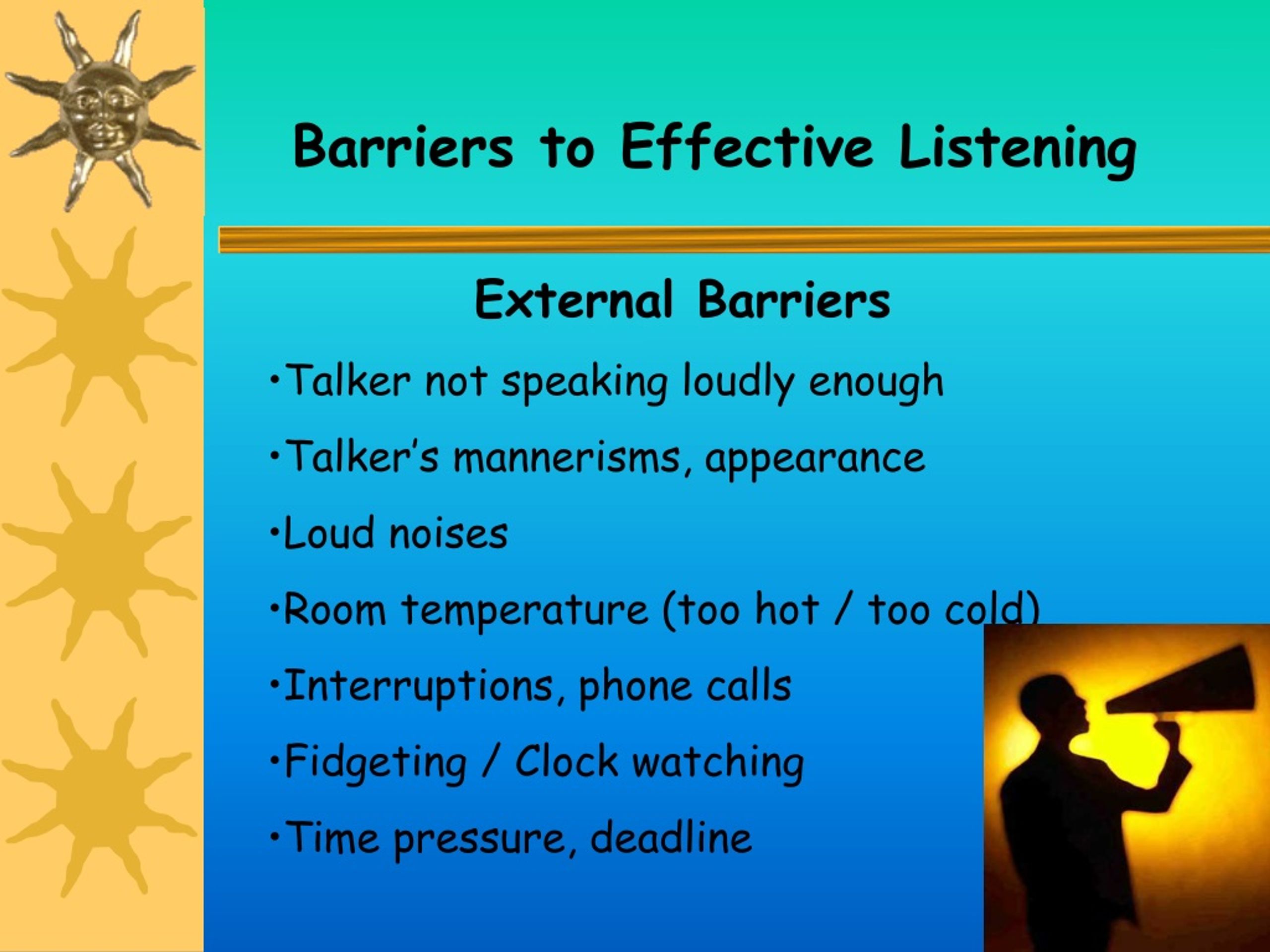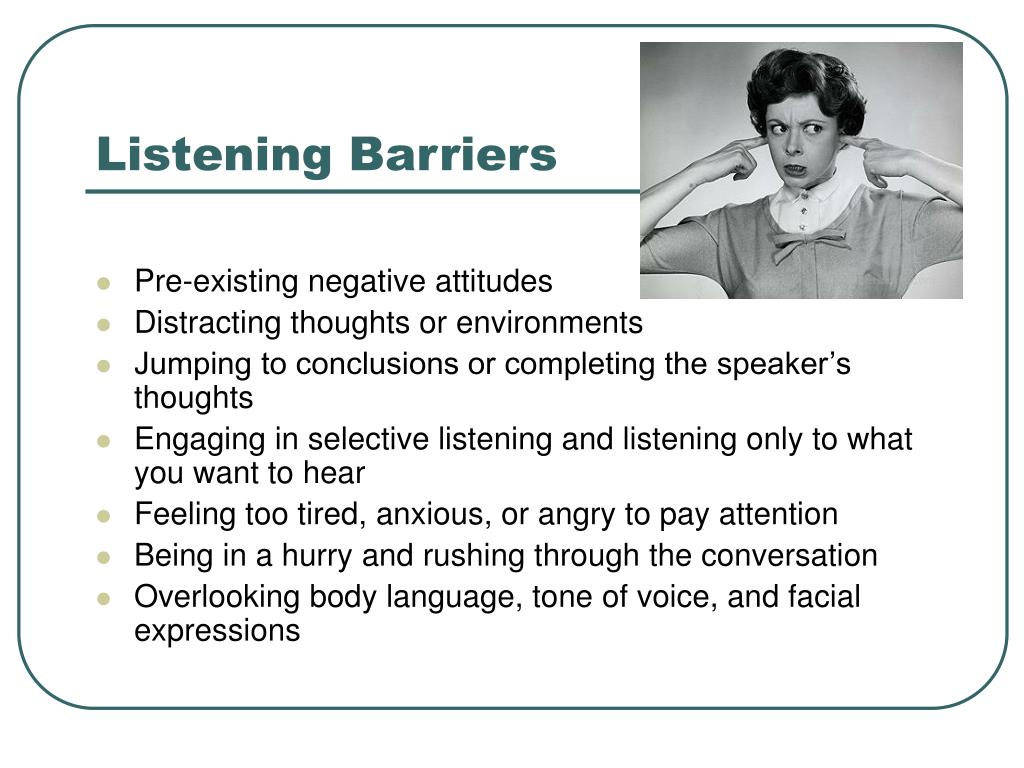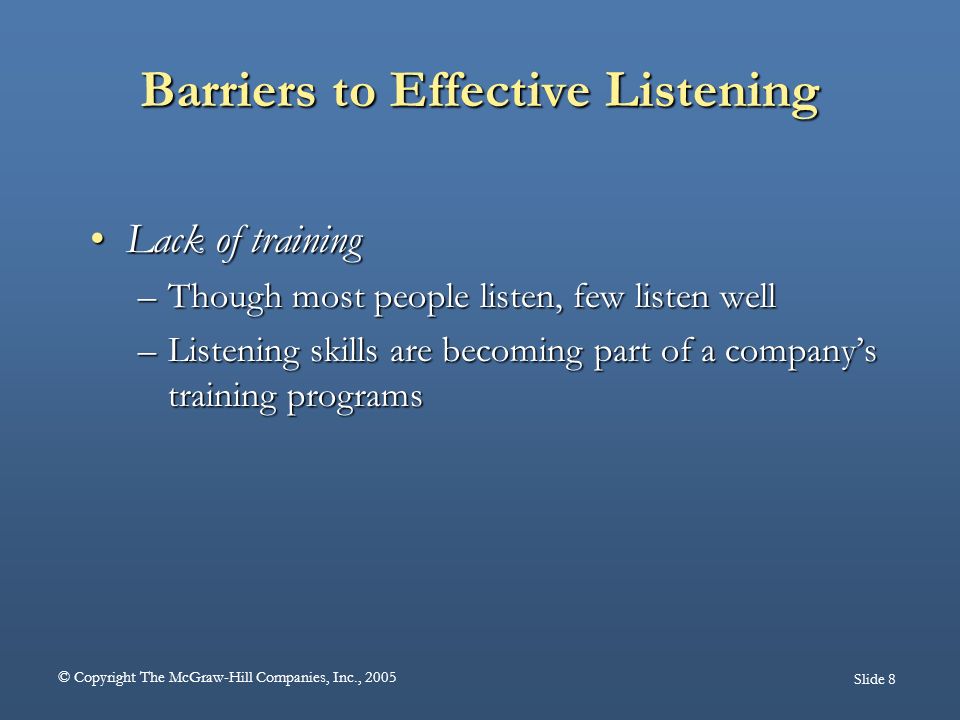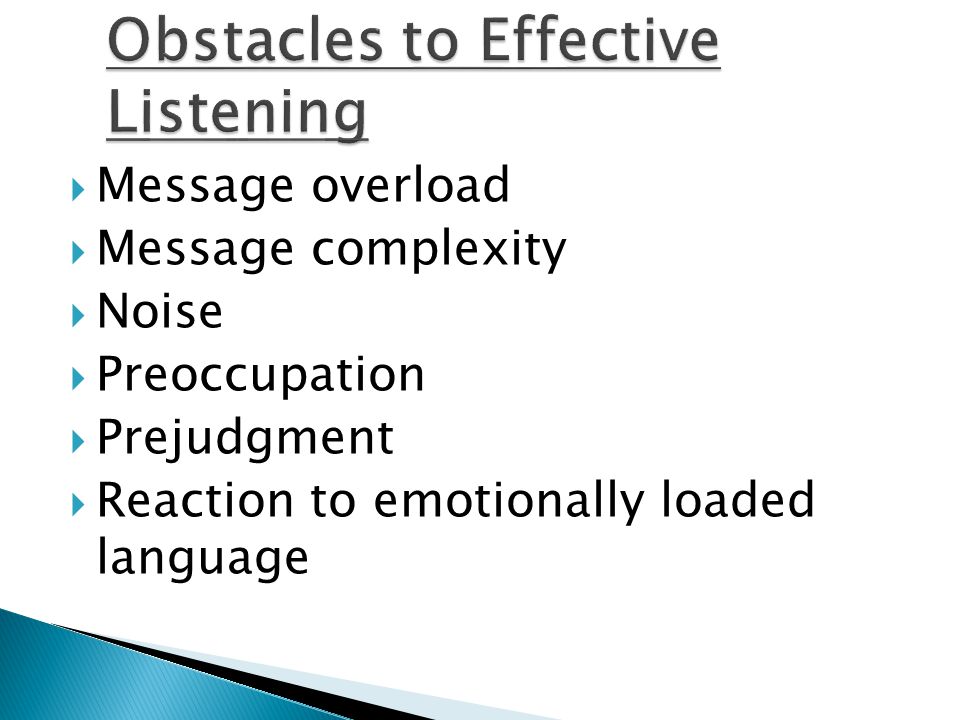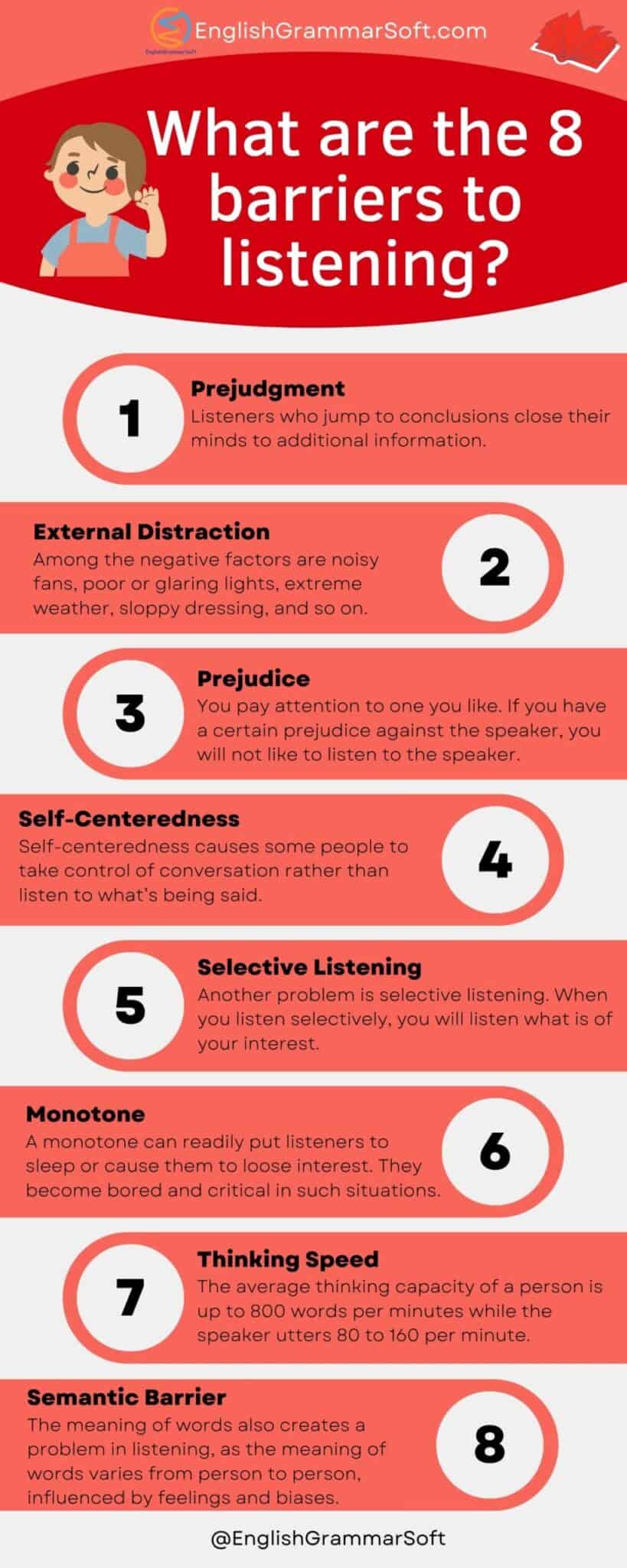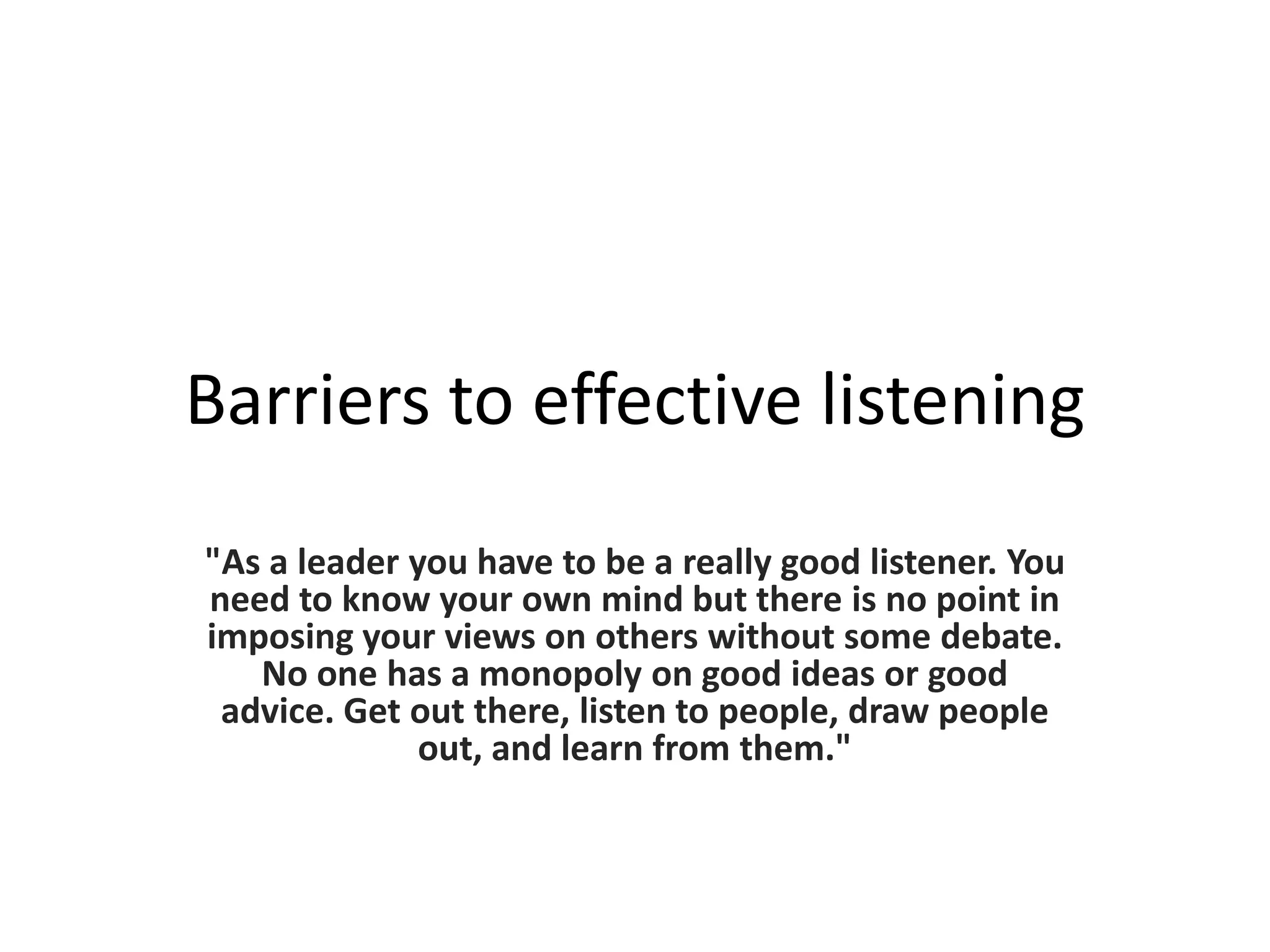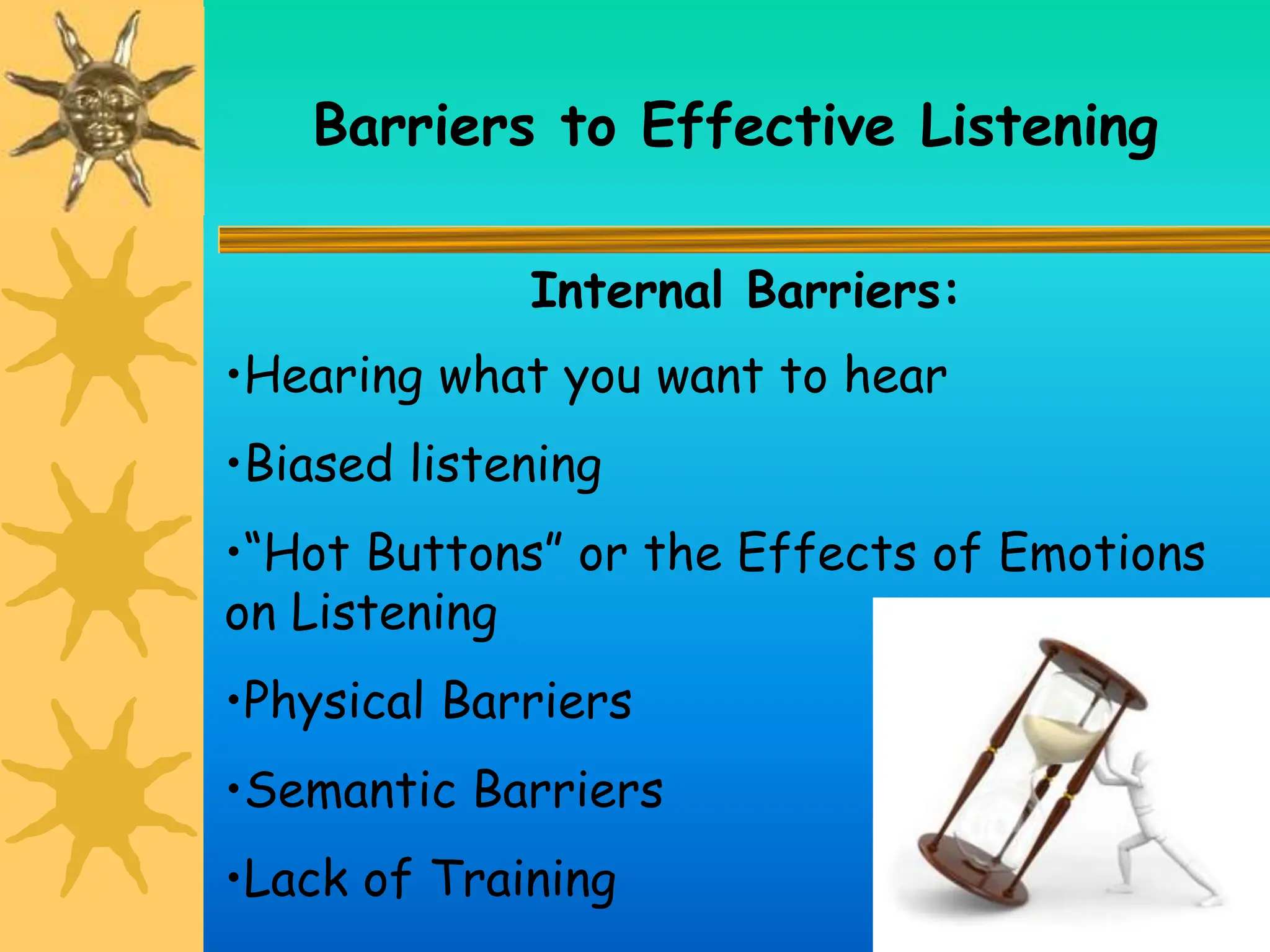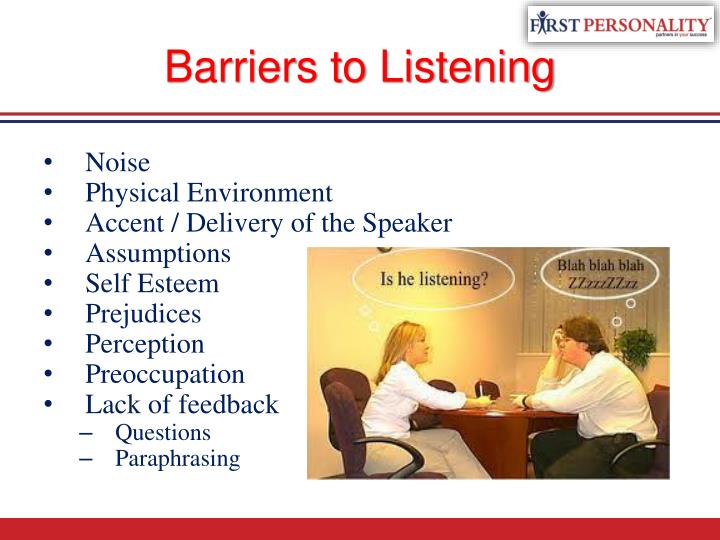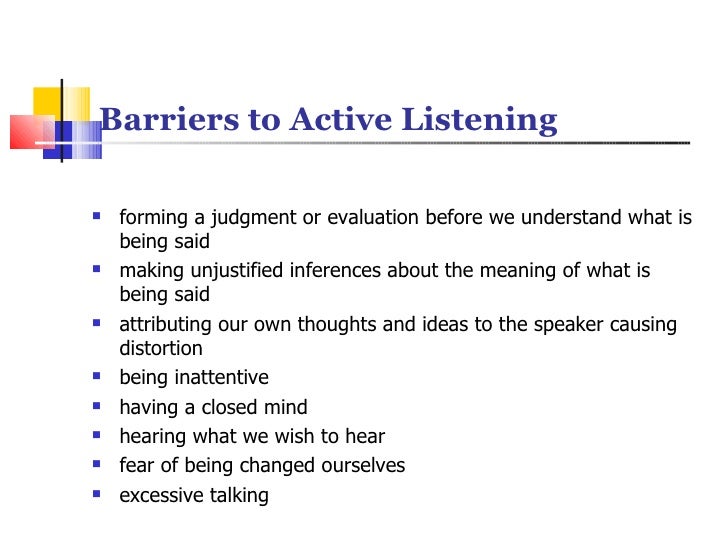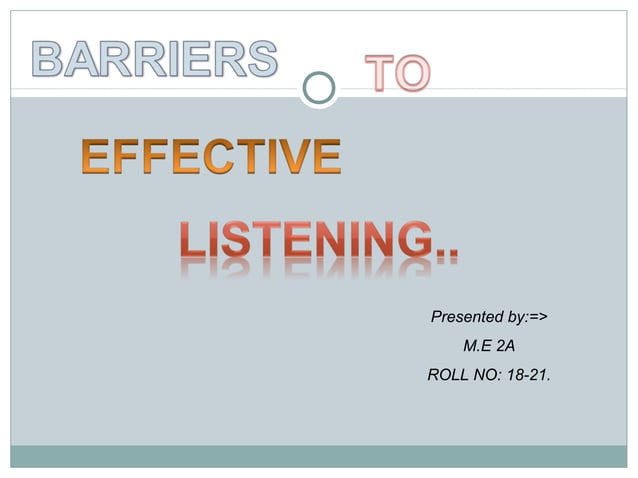Eight Barriers To Effective Listening
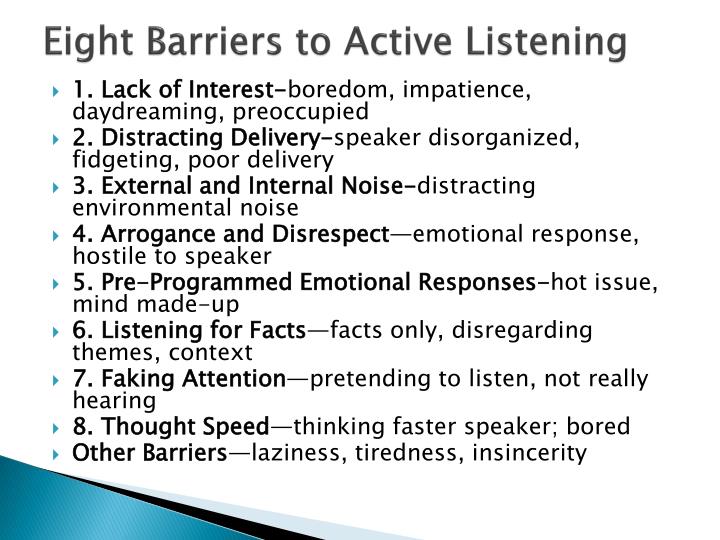
Imagine sitting in a bustling coffee shop, the aroma of roasted beans mingling with the murmur of conversations. You're trying to focus on a friend sharing an important story, but the clatter of dishes, the barista calling out orders, and the snippets of other people's chats keep pulling your attention away. You realize, with a slight pang of guilt, that you're only catching bits and pieces, not truly hearing what they're saying.
Effective listening is a cornerstone of strong relationships, successful collaborations, and personal growth. However, in our increasingly noisy and distracted world, it's a skill that often gets overlooked. This article will explore eight common barriers that hinder our ability to truly listen, offering insights into how we can overcome them and become better communicators.
Internal Barriers: The Noise Within
1. Preconceived Notions and Biases
We all carry around baggage: pre-formed opinions, beliefs, and biases shaped by our experiences. These preconceived notions can act as filters, causing us to distort or reject information that doesn't align with what we already believe.
We might prematurely judge the speaker or dismiss their ideas without truly considering their perspective. Actively challenging our assumptions and approaching conversations with an open mind is crucial.
2. Preoccupation and Distractions
How often are we truly present in a conversation, instead of mentally rehearsing what we want to say next, or dwelling on a past event? Preoccupation with our own thoughts and worries can create a major barrier to effective listening.
Similarly, internal distractions such as hunger, fatigue, or discomfort can divert our attention away from the speaker. Cultivating mindfulness and practicing present moment awareness can help us stay focused.
3. Emotional Reactions
Strong emotions, whether positive or negative, can significantly impact our ability to listen objectively. If a speaker says something that triggers an emotional response, we might become defensive, argumentative, or shut down completely.
Learning to recognize and manage our emotional reactions is essential for maintaining composure and remaining open to the speaker's message. Taking a deep breath or acknowledging the emotion can help us regain control.
4. Fear of Being Influenced
Sometimes, we resist truly listening because we fear being persuaded or changed by the speaker's message. We might cling to our own beliefs and resist any information that challenges them. This resistance creates a wall between us and the speaker, preventing genuine understanding.
Recognizing this fear and embracing the possibility of learning something new, even if it challenges our current views, can open us up to richer and more meaningful conversations.
External Barriers: The World Around Us
5. Physical Distractions
External distractions, such as noise, visual clutter, or uncomfortable surroundings, can make it difficult to concentrate on the speaker. Physical distractions can be minimized by choosing a quiet and comfortable environment for important conversations.
Turning off notifications on our phones and closing unnecessary tabs on our computers can also help reduce distractions. Creating a dedicated space for focused listening is key.
6. Information Overload
In today's information-saturated world, we are constantly bombarded with stimuli, making it challenging to process and retain information. Information overload can lead to fatigue, frustration, and a reduced ability to listen attentively.
Taking breaks, prioritizing information, and focusing on the most important aspects of the message can help us manage information overload and improve our listening skills.
7. Rapid Thought
According to research cited by the University of Missouri, people can think much faster than they can speak. This discrepancy can lead to impatience and a tendency to anticipate what the speaker is going to say, rather than truly listening to their words.
This "gap" can cause us to interrupt, finish the speaker's sentences, or simply tune out mentally. Practicing patience and actively focusing on the speaker's words can help bridge this gap.
8. Poor Speaking Skills
Sometimes, the barrier to effective listening isn't our fault at all! If the speaker is unclear, disorganized, or uses confusing language, it can be difficult to follow their train of thought. Poor speaking skills on the part of the communicator can create a significant obstacle.
While we can't always control the speaker's communication style, we can ask clarifying questions, summarize their points to ensure understanding, and offer gentle feedback if appropriate.
Overcoming these eight barriers requires conscious effort and a willingness to prioritize listening. By becoming aware of these obstacles and actively working to mitigate them, we can transform ourselves into better communicators, build stronger relationships, and foster deeper understanding in all aspects of our lives. Remember, true listening is not just about hearing the words; it's about understanding the message and connecting with the person behind it.
